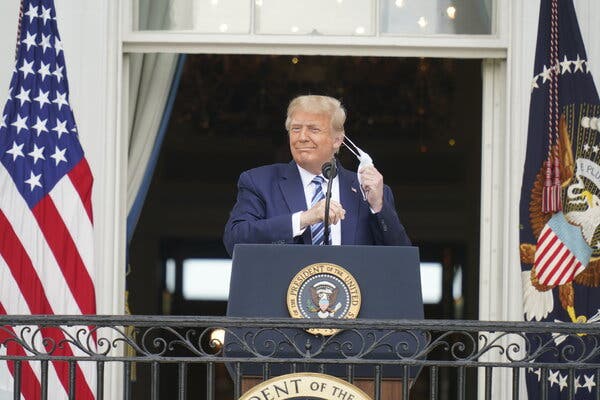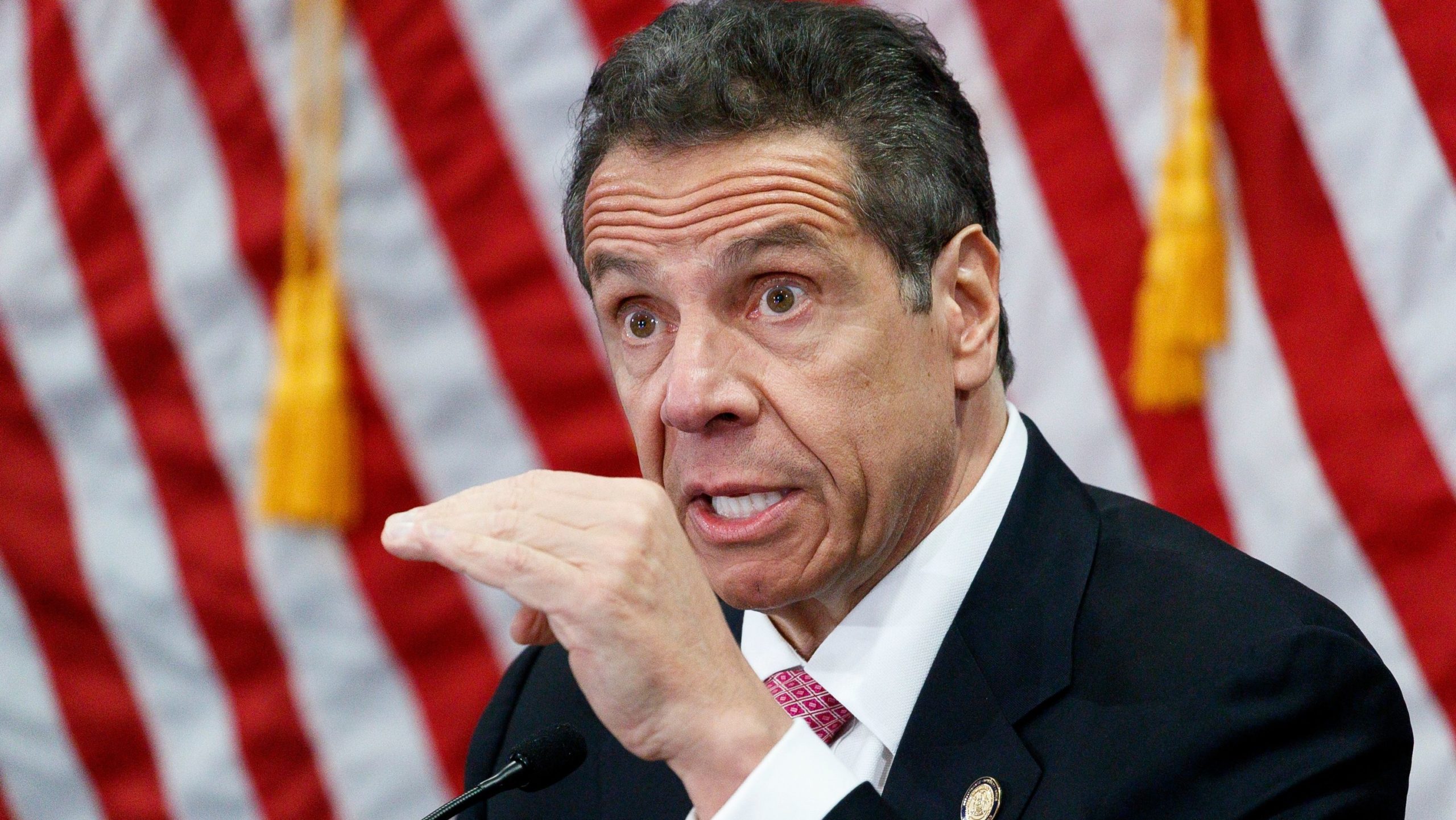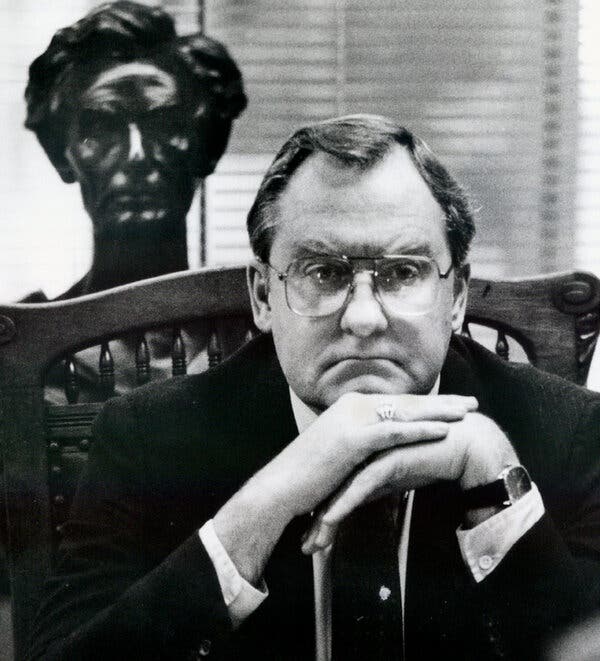A fevered push by President Trump and Republican loyalists to unmask the whistleblower who launched the impeachment inquiry has churned up fundamental questions about the complainant’s legal protections, motives and safety.
In the past week, Trump has stepped up his assault on the anonymous federal employee, who disclosed a phone call in which Trump asked the Ukrainian president for a “favor” – to investigate political rival and former Vice President Joe Biden.
Thursday, Donald Trump Jr. tweeted about a person whom conservative websites have named as the whistleblower, a claim that has not been verified.
“It’s a kill-the-messenger approach,” said Jackie Garrick, founder of Whistleblowers of America, a volunteer support organization. “That’s what retaliation is all about – character assassination.”
Federal laws protect whistleblowers from retaliation, which could include identifying the person in question. But it’s not clear that those laws would prohibit the president from doing so.
People outside the Trump administration, including members of Congress and the public, would likely be covered by the First Amendment if they named the person, though civil law guards against libel and slander.
Legal protections may work for a while, but experts say federal employees who speak out about abuse or misconduct usually pay the price, professionally and personally. Most whistleblowers end up shunned and alone.
“Many regret what they did,” said C. Fred Alford, a professor emeritus of government and politics at the University of Maryland who has studied whistleblowers.
“But they say, ‘I couldn’t have done otherwise,'” he said. “And they never recover from what they’ve learned about the world.”
Quid pro quo:The impeachment turns on this phrase. But what does that mean?
Pressure grows to identify whistleblower
The president has support from zealous online backers and, this week, Sen. Rand Paul, R-Ky., who demanded that the news media name the whistleblower.
“We also now know the name of the whistleblower,” Paul declared during a political rally, though he didn’t name anyone. “The whistleblower needs to come forward as a material witness because he worked for Joe Biden.”
Paul apparently was referring to conservative websites and social media accounts that claim to have identified an intelligence employee as the whistleblower. USA TODAY has not independently verified those allegations.
Paul and Trump Jr. have faced criticism from people who say they’re endangering the whistleblower.
That’s what worries Andrew Bakaj, co-counsel for the whistleblower. He said he’s increasingly fearful for his client and upset by the rhetoric used by Trump, his supporters and public officials.
He said death threats have been directed at the whistleblower and attorneys, prompting them to take security measures that he would not describe.
“I’m certainly concerned about the safety of our client,” Bakaj said. “People need to be accountable – God forbid something should happen. This is serious: Somebody’s life and family” are at stake.
Pathway of impeachment process:How it works, where we are
Adam Schiff, D-Calif., chairman of the House Intelligence Committee, considered having the whistleblower testify before Congress, perhaps in a way that concealed his or her identity, but said he decided against it because of Trump’s attacks.
Bakaj said the whistleblower is irrelevant now that others have corroborated the account of Trump’s phone call with Ukrainian President Volodymyr Zelensky. However, Bakaj and his co-counsel have agreed to allow their client to answer written questions from Republican lawmakers.
Trump said that’s not good enough. Earlier this week, the president alleged the whistleblower provided false information and “must be brought forward to testify.”
Most Republicans have been silent on the issue or have called for the whistleblower to come forward. One exception is Sen. Charles Grassley, R-Iowa, who rebuked Trump and said the whistleblower should be protected.
Nick Schwellenbach, director of investigations for the Project on Government Oversight, a nonpartisan government watchdog, said there is “huge irony” in congressional calls to identify the whistleblower.
“They’re violating the spirit of these laws. And the laws are there to help Congress do its job,” he said. “They’re hurting themselves.”
Impeachment hearings:House Democrats announce first public hearings
How federal laws help whistleblowers
Federal laws protect whistleblowers from reprisal in order to encourage employees to report corruption, lawbreaking and unethical conduct. Government officials who violate protective statutes may be disciplined or fired.
National security whistleblowers, who have access to top-secret information, are protected under a special law that covers 17 intelligence agencies and imposes requirements for filing a complaint with the Office of Inspector General for the intelligence community.
An executive or other employee in an intelligence agency would break that law by identifying an anonymous whistleblower.
The person who outed Trump’s conversation appears to be hyperaware of America’s protective statutes. The whistleblower’s seven-page letter to the inspector general goes into detail in explaining that the complaint followed federal procedures.
Bakaj made it clear he believes outing his client would be a form of retaliation that’s generally prohibited. But he doesn’t believe the law applies to Trump or members of Congress.
Still, Bakaj said, “I would expect members of the U.S. Senate, as well as the president of the United States, would respect the protections our client is afforded by statute.”
The Privacy Act also precludes government officials from identifying federal employees in many circumstances. Schwellenbach said that law bans White House and other executive-branch officials from identifying the whistleblower.
But again, it’s unclear whether that law would apply to Trump. “The system is not set up to discipline the president,” Schwellenbach said.
He said a push by the president or lawmakers to expose or “slime” the whistleblower may be retaliatory even if it’s not illegal. He also suggested it could be dangerous given Trump’s ability to stir emotions in a political climate with “a lot of very unhinged people out there.”
“This is such a passionate issue,” Schwellenbach said. “I think the person might need witness protection more than whistleblower protection.”

Experienced whistleblowers offered overlapping advice to the Trump informer: Tell the truth. Hire good lawyers. Take care of family and finances. Expect character assassination. Stay cool under fire.
“There is a whole cottage industry out there trying to destroy this person’s life,” Schwellenbach said.
“It’s a dangerous situation, and I don’t use that word lightly,” said John Kiriakou, a former CIA officer who went to prison after exposing U.S. waterboarding of al-Qaida suspects overseas. “There’s a lot of crazy people out there.”
Kiriakou initially didn’t face repercussions, but several years later he was convicted of disclosing classified information after he gave the name of a CIA agent to a reporter.
A ticket to ‘professional Siberia’
The term “whistleblower” emerged in the 1970s instead of pejoratives such as “snitch” and “rat fink.”
Protections are not built into the Constitution. The first legal provisions were adopted in the Civil Service Reform Act of 1978, part of a wave of legislation that followed Watergate.
Eleven years later, the Whistleblower Protection Act spelled out the rights of federal employees to disclose government “illegality, waste, and corruption” without adverse consequences.
Since then, more laws have been adopted. Executive orders and court rulings have been issued. Oversight agencies have been created.
But those who have blown the whistle — and experts who study them — say shields against reprisal are easily circumvented, and oversight agencies often are backlogged and politicized.
The number of whistleblower complaints submitted to the Office of Special Counsel increased by 62 percent between 2011 and 2016, according to a report last year by the Government Accountability Office. The average time to process cases approached two years.
Even employees at the Office of Special Counsel, which is supposed to defend whistleblowers, were fearful of filing complaints because they did not believe they would be protected, according to the report.
The inspector general of the Department of Veterans Affairs found that, instead of assisting employees, the VA Office of Accountability and Whistleblower Protection conducted shoddy investigations, disrespected whistleblowers and sometimes turned on them.
Often, complainants become victims of retaliation – fired, harassed or disciplined without cause. Those who file appeals encounter another roadblock: The Merit Systems Protection Board is unable to hear their cases because it has lacked a quorum since January 2017.
As a result, Schwellenbach said, government employees who report misconduct “will probably be in professional Siberia at some point.”
Protective agencies are “worse than ineffective,” said Jesselyn Radack, director of the Whistleblower and Source Protection Program at the journalistic nonprofit ExposeFacts.
“The offices tasked with protecting whistleblowers are often used to retaliate against them,” she wrote in a column published by the Society of Professional Journalists. “Beyond administrative retaliation, whistleblowers increasingly face harsh criminal prosecution.”
‘Almost all have suffered’
The public perception of whistleblowers is often framed by Hollywood movies, from the Watergate classic “All the Presidents Men” to “The Post,” a 2017 film about the Pentagon Papers.
In real life, experts say, a few prominent figures may be lionized while average informers are trampled by history.
Alford, author of “Whistleblowers: Broken Lives and Organizational Power,” said most whistleblowers receive little public attention and, within a couple years, wind up shunned and fired, with broken homes and substance-abuse issues.
High-profile figures may gain some security with notoriety. But, for the man or woman who set off the impeachment furor, Alford said, fame almost certainly will be overwhelmed by a smear campaign or worse.
People who report government abuses, Alford said, are unusual people – highly principled, idealistic and naïve – who feel compelled to expose wrongdoing. They are often shocked not just by the misconduct they have revealed, but by the dishonesty and vindictiveness of those who retaliate.
“I would say almost all have suffered. There are very few success stories,” Alford said. “They think they’re doing their duty and they’ll get a pat on the back. … But organizations seem to find it impossible to live with someone who is willing to commit the truth.”
Tom Mueller, a journalist and author of “Crisis of Conscience: Whistleblowing in an Age of Fraud,” said employees in the national security realm have the fewest protections because they are required to report wrongdoings to the agency they are accusing.
Mueller said the impeachment complaint was supposed to go directly to Congress, but instead was carried to the White House by the director of National Security. That’s “the exact opposite of what’s supposed to happen,” he said.
“Quite often, politics trumps — no pun intended — the legal process,” Mueller said. “When you have broken whistleblower laws like we have, with no protections, you have people going outside the system.”
Bradley Birkenfeld was sentenced to prison after exposing tax evasion in banking. He later collected a $104 million settlement from the IRS.
“Whistleblowers are generally mistreated, maligned and attacked,” he said.
Proving his own point, Birkenfeld expressed skepticism about the complainant who divulged Trump’s phone call. He criticized the person’s decision to remain anonymous and disparaged the individual’s motives.
“It’s quite clear there’s a political agenda,” Birkenfeld said. “They’re trying to undermine a sitting president.”
Contributing: Nicholas Wu




